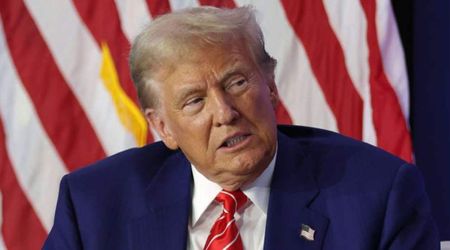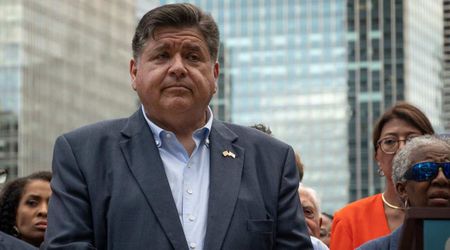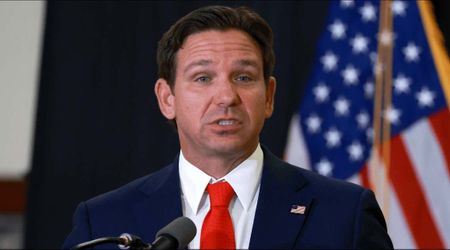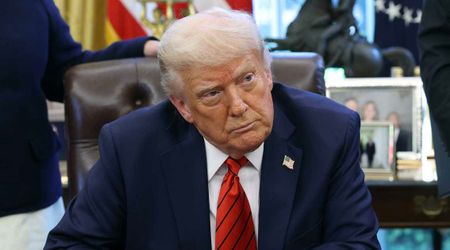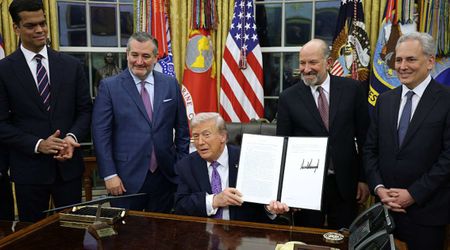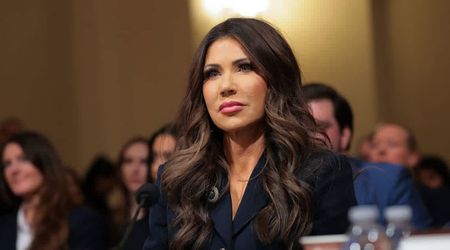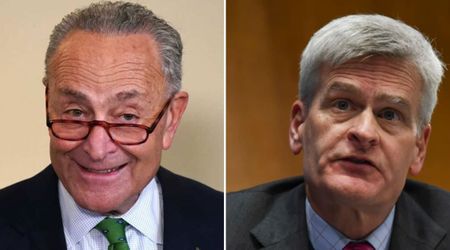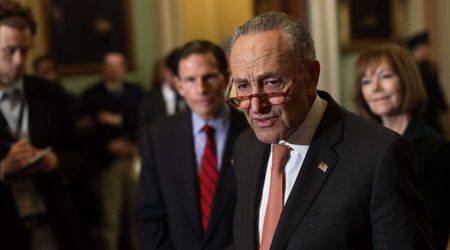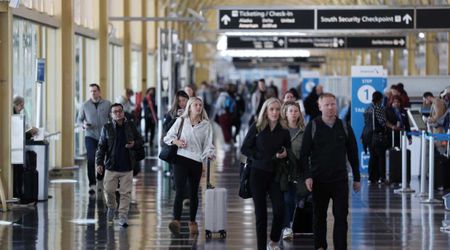Trump argues 'playing the ref' with SCOTUS judges should result in severe penalties despite own history

WILKES-BARRE, PENNSYLVANIA: Former president Donald Trump faced quite a backlash on social media following his remarks during a rally on Saturday, August 17.
The rally, held at the Mohegan Sun Arena at Casey Plaza in Northeast Pennsylvania, saw Trump staunchly defending the Supreme Court and condemning efforts to influence the judiciary.
However, his comments sparked a pushback online, with many pointing out the irony of Trump’s statements given his own history of criticizing the nation's highest court when rulings did not go in his favor.
Donald Trump's latest comments spark backlash
During the rally, Donald Trump stressed the importance of maintaining the judicial system's integrity. He told the audience, "Playing the ref with our judges and justices should be punishable by serious fines and beyond."
The rally marked Trump’s seventh visit to Pennsylvania this year, a state that played a crucial role in his 2016 victory. The location of the rally, Wilkes-Barre, is notably close to President Joe Biden’s boyhood home in Scranton.
Trump on people who criticize the Supreme Court: Playing the ref with our judges and justices should be punishable by serious fines and beyond that. pic.twitter.com/bnQTHv6WIY
— Acyn (@Acyn) August 17, 2024
Trump's comments quickly drew fire on social media, where critics pointed out the apparent hypocrisy in his stance.
"Of course, he's never criticized a judge," one social media user posted on X.
"This is literally playing the ref," another wrote.
"The guy who whines about the judges who preside over his own criminal cases said what??" asked one person.
"I’m old enough to remember Trump criticizing the Supreme Court," another commented.
"He just said he should be punished. Works for me!" someone else offered.
"Everything is a crime unless Donald Trump does it," one individual said.
Wut???
— JimBob McBoatFace (@JBobMcBoatFace) August 17, 2024
The guy who whines about the judges who preside over his own criminal cases, said what??
I’m old enough to remember Trump criticizing the Supreme Court.
— James McCormick (@realYatzoSpatzo) August 18, 2024
He just said he should be punished. Works for me!
— Four Years Better (@FourYearsBetter) August 17, 2024
Donald Trump’s history of criticizing the judiciary
The social media backlash was fueled by Donald Trump’s well-documented history of criticizing the judiciary. During his 2016 presidential campaign, Trump famously clashed with US Supreme Court Justice Ruth Bader Ginsburg.
Ginsburg had publicly called Trump “a faker," adding, “I can’t imagine what the country would be – with Donald Trump as our president.” In response, Trump took to Twitter (now X) to label Ginsburg as an “incompetent judge” and called for her resignation.
In February 2017, Trump targeted US Supreme Court Justices Sonia Sotomayor and Ruth Bader Ginsburg once again, demanding that they recuse themselves from any cases involving him.
This followed Justice Sotomayor’s dissent in a case where the Supreme Court temporarily blocked a lower court ruling that would have prevented the Trump Administration from denying green cards to immigrants based on their use of public benefits like Medicaid, SNAP, and housing assistance.
Supreme Court’s role in Donald Trump’s legal battles
Despite appointing three justices to the Supreme Court, Donald Trump has found himself at odds with the very court he helped shape. The current Supreme Court, which has a 6-3 conservative majority, has ruled against Trump in several cases involving his criminal probes and his unproven claims of a stolen election.
Trump has previously expressed concerns that the court might rule against him again in the future to avoid appearing partisan, NBC News reported.
In a rally in Sioux City, Iowa, earlier this year, Trump lamented, “All I want is fair. I fought really hard to get three very, very good people and they’re great people, very smart people. And I just hope that they’re going to be fair because you know, the other side plays the ref.”
The ongoing legal battles surrounding Trump’s actions during and after his presidency continue to draw significant attention. One of the most critical issues is the Supreme Court’s recent decision to grant at least presumptive immunity to former presidents for official conduct.
This ruling, which was decided by a 6-3 vote, leaves it to the trial judges to apply the Supreme Court’s immunity test to the specifics of Trump’s cases. The landmark decision is set to play a pivotal role as the former president faces multiple criminal charges.
Implications on pending cases
The implications of the Supreme Court’s ruling will be tested in the coming months as judges in two of Trump’s four criminal cases weigh in on how his federal indictment for allegedly conspiring to subvert the 2020 election should proceed.
On September 5, US District Judge Tanya Chutkan is set to rule on this matter. Less than two weeks later, New York Supreme Court Acting Justice Juan Merchan will determine whether to overturn Trump’s conviction in his hush-money case, which could be his only criminal verdict before the next election.
Trump’s lawyers have already begun using the Supreme Court’s ruling to challenge his conviction in New York, arguing that the prosecution improperly used evidence of his official acts, such as witness testimony from White House aides and his government ethics form.
The outcome of these legal battles will likely shape Trump’s campaign leading up to the election, The Hill reported.

